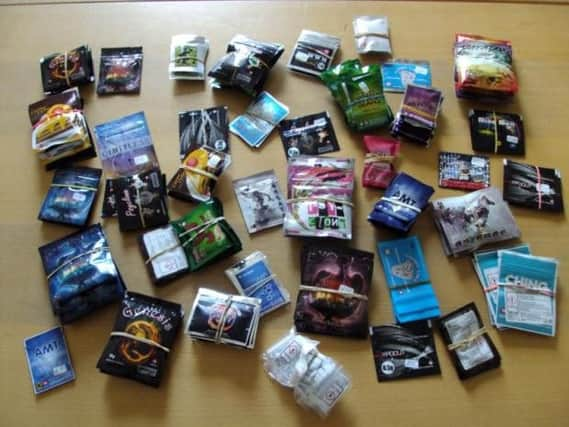Nottinghamshire County Council welcomes imminent 'legal high' ban


The Psychoactive Substances Act - which comes into force at midnight - will prohibit 'any substance intended for human consumption that is capable of producing a psychoactive effect'.
Under the new legislation, dealers will face up to seven years in prison and people found in possession of 'legal highs' could be jailed for up to two years - the same as a custodial penalty for possession of a class C drug. In addition, police will be handed new powers to search for and seize and destroy the substances.
Advertisement
Hide AdAdvertisement
Hide Ad'Legal highs' produce similar effects to illegal drugs like cocaine, ecstasy and cannabis.
In 2015 Nottinghamshire's trading standards team seized more than 900 packs of untested drugs with names including Go-Caine, Herbal Haze and Atomic Bomb.
Councillor Glynn Gilfoyle, committee chairman for community safety at Nottinghamshire County Council, said: "These new drugs can kill and there have been cases elsewhere in the UK where people have died. In many cases, new psychoactive substances are also packaged with a warning saying 'not for human consumption'.
"If someone was presented with a decaying slice of meat with maggots in it, that would not be fit for human consumption - so why do people take the risk with these new drugs when they don’t know what chemicals are in them and what effect it will have on them both short term and long term?"
Advertisement
Hide AdAdvertisement
Hide AdA council spokesman added: "The council's trading standards, community safety and public health teams have formed a working group with partners including the police, health and voluntary organisations to address issues arising from the use of 'legal highs' across the county including implementation of the new legislation."
The Government said 'legal highs' were linked to the deaths of at least 140 people in the UK in 2014.
But the Office for National Statistics found that in 60 per cent of the fatalities connected to 'legal highs' between 2004 and 2013, the deceased had also ingested other substances.
The ban has been welcomed by many individuals, organisations and charities - but Dr Adam Winstock, a consultant addiction psychiatrist and founder of the Global Drug Survey, criticised the legislation.
He claimed the law will 'likely push people back towards illegal drugs'.